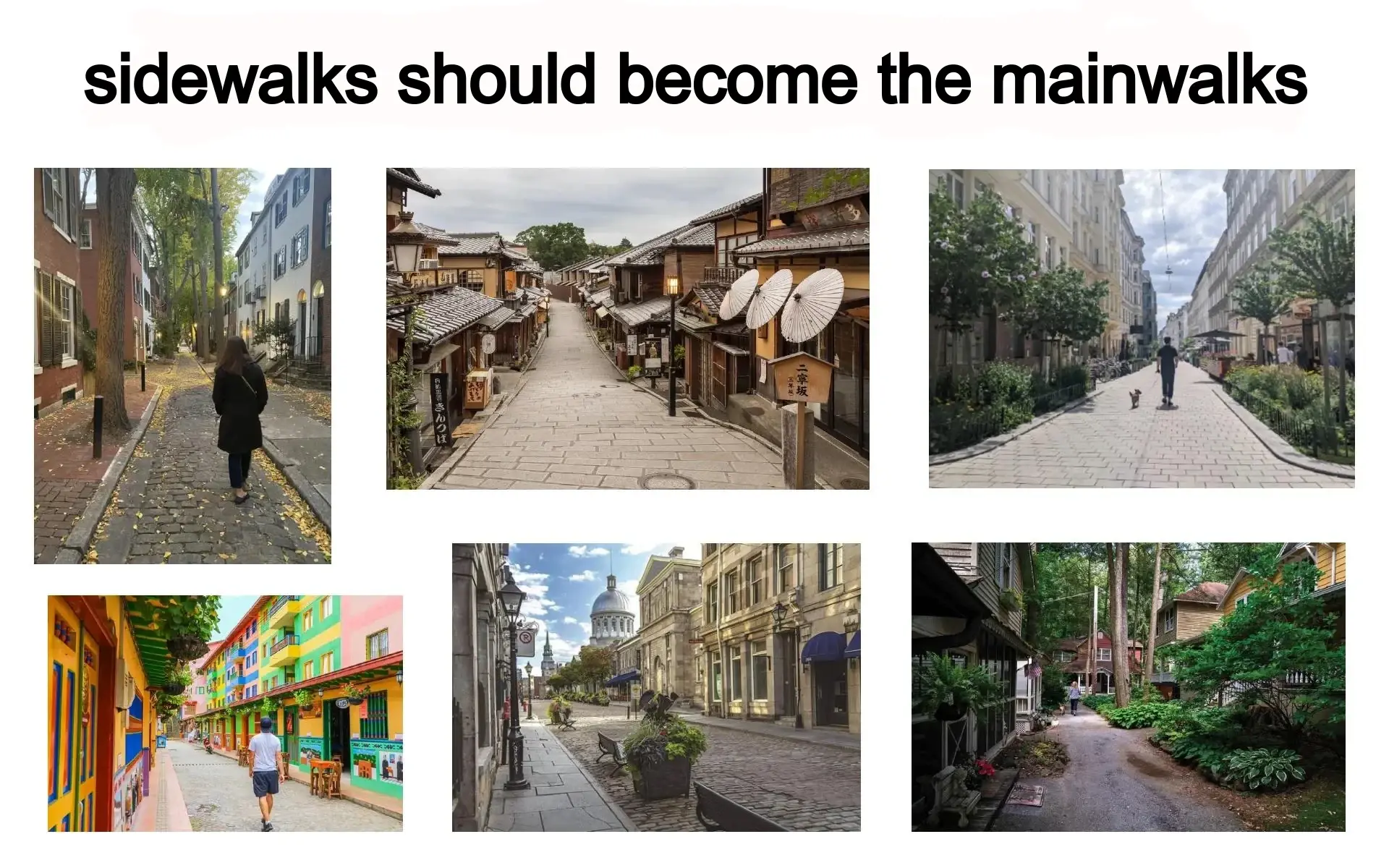view the rest of the comments
Fuck Cars
A place to discuss problems of car centric infrastructure or how it hurts us all. Let's explore the bad world of Cars!
Rules
1. Be Civil
You may not agree on ideas, but please do not be needlessly rude or insulting to other people in this community.
2. No hate speech
Don't discriminate or disparage people on the basis of sex, gender, race, ethnicity, nationality, religion, or sexuality.
3. Don't harass people
Don't follow people you disagree with into multiple threads or into PMs to insult, disparage, or otherwise attack them. And certainly don't doxx any non-public figures.
4. Stay on topic
This community is about cars, their externalities in society, car-dependency, and solutions to these.
5. No reposts
Do not repost content that has already been posted in this community.
Moderator discretion will be used to judge reports with regard to the above rules.
Posting Guidelines
In the absence of a flair system on lemmy yet, let’s try to make it easier to scan through posts by type in here by using tags:
- [meta] for discussions/suggestions about this community itself
- [article] for news articles
- [blog] for any blog-style content
- [video] for video resources
- [academic] for academic studies and sources
- [discussion] for text post questions, rants, and/or discussions
- [meme] for memes
- [image] for any non-meme images
- [misc] for anything that doesn’t fall cleanly into any of the other categories

People didn't really decide, an upper class was able to afford automobiles, they hit tons of people in the streets, they worked together with politicians and automakers to push to make streets for the cars for safety, and invented the term jaywalking. The people who owned cars decided streets belonged to them and through mass production and suburban development, they have become completely normalized.
This legitimately makes it safer for them to coexist, this isn’t some bad thing the lawmakers did just because they had cars. Whether or not you agree with still having cars doesn’t change that that was a good thing.
At the time, many places were considering outright banning cars or at least requiring speed limiters in all cars (to limit to like 25 mph). Car companies knew this would hurt sales, so they started a PR campaign to victim blame pedestrians for pedestrian fatalities. I personally think universal speed limiters set to a quite low speed along with far fewer cars would be far better for safety than modern "rules of the road" + car domination.
https://www.vox.com/2015/1/15/7551873/jaywalking-history
At one point, cars had to be preceded by a guy waving a red flag. I believe it was a great solution.
North american street and road design are not great at preventing automobile accidents due to their wide designs, high speed limits, and poor road hierarchy uses. The roads are especially unsafe for anyone outside of a car like pedestrians and cyclists. If this was truly done for safety there would be more traffic calming, safer pedestrian crossing and protected bike lanes. Cars are the most subsidized method of transit in North America and the roads/streets are designed to move as many cars as fast as possible.
Lawmakers also sat idly by while big auto corporations bought street car companies, ripped out the street cars, replaced them with buses, and eventually cancelled the bus services as they were now stuck in the traffic created by destroying the street cars and promoting more people to drive. Lawmakers also decided that dense downtown areas should be destroying their buildings to meet parking minimums that were based on very little real data. Sure lawmakers didn't force you to buy a car, but they certainly contributed to the erosion of walkability and transit as well as promoted car centric design (suburbs, strip malls, parking minimums).
Not disagreeing with the person above me here in the reply chain but wanted to tack onto the conversation that all of the following is historically true:
A) the lack of separation of means of travel has caused traffic issues for everyone involved as long as there have been more than one mode of travel (and those modes of travel weren't separated)
B) most people (but especially urban Americans) were opposed to cars and saw them as a blight on their city. The city was for the people, the road was for the people. This mentality is reflected in many many news articles which interviewed everyone from the average worker, to cops, to mayors.
C) that the car industry learned how to lobby against the American political system to take advantage of zoning laws and implement stricter guidelines for car centric designs such are minimum parking requirements.
Each of these things played a part in what American car infrastructure looks like today. People hated being afraid of cars, so local government was trying to separate cars from people. The car industry wanted the automobile to be the only form of transportation so it pressured the federal and state governments into passing laws which would result in this happening.
Wanted to highlight this because I feel like a lot of people think it was caused by one thing (namely GM), but life and history aren't that simple. It was a multitude of factors all overlapping with one another that were amplified by the lobbyists actions.
I think big oil and gas pulled a few strings as well. Making people rely on cars also meant making them rely on gas.
Unfortnately cities were in a sense sold out to these companies with promises of prosperity brought by the automobile but instead recieved crippling debt trying to support the automobiles and their roadways.
Whether or not it’s a good thing is totally a fair point for discussion. Sidewalks and dedicated driving lanes were not the only possible solution.